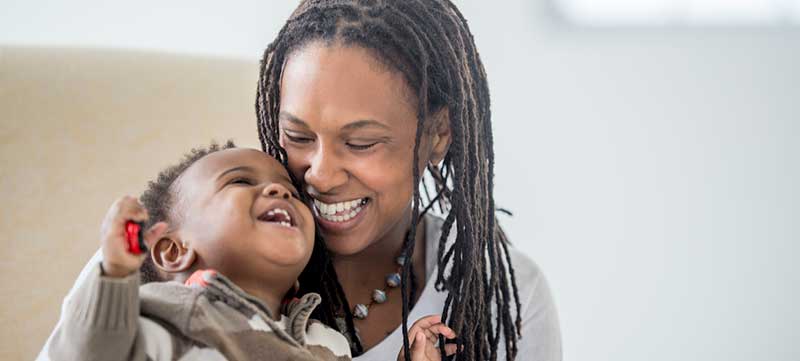
Someone Else’s Children
My husband and I have three adopted children. Three boys. They call each other brothers of another mother. They’re cool with that and so am I. Unfortunately, precious few Christian African American women would agree with my views on adoption.
As a young, married woman 19 years ago, I didn’t have a positive attitude about adoption. Frankly, adoption was the furthest thing from my mind. Both my husband and I were in school full time, working like Hebrew slaves on advanced engineering degrees. Between the two of us we made $18,000 a year in stipends. I thank God for those years (and for that small vegetable patch). Those lean times taught me how to wait on God.
Growing up in the swamplands of North Carolina, I played with trucks and climbed trees. Doll babies and tea sets were never on my gift wish list. After a few years of marriage that changed. It happened one sunny afternoon while I babysat for a college friend. That precious little toddler stole my heart with her sparkling brown eyes and chubby hands. When her mother picked her up two hours later, our one-bedroom apartment never felt so empty.
I soon graduated and tried to replace the longing for a child with a full-time job, volunteering at an urban ministry, church involvement, and writing. But the longing persisted. My husband was still in grad school but he agreed that it was time to start a family. I was 29. One and a half years later and no baby, I hit a wall. I started each day in tears, crying in the darkness of my walk-in closet before work. The crying lasted for months. On the outside, I was doing good things in my church and community racial reconciliation ministry. I was a faithful wife. I was a productive engineer.
On the inside, I was dying. Longing for a child.
At church, someone suggested we consider adoption. I was tired of all the doctor’s visits, the treatments, basal thermometers, and the prayers to God. I wanted relief. I wanted to feel good again, to feel God again. Adoption seemed like a good option.
We did our research. We talked with counselors and social workers. We talked with our friends and parents. We prayed and fasted. We had so many questions about the process, the costs, but especially the kids: What if they’re not black (or black enough)? What if they’re developmentally challenged? What if they’re violent? What if they’re crack babies?
God answered all those questions with peace. As Psalm 34:4 says: I sought the LORD, and he answered me; he delivered me from all my fears.
Along the way my husband and I have met some really wonderful adoptive parents. One couple, Becky and Joe, became part of our family. Our first meeting, though, was a tough one. It was on a Saturday morning in 1997, the year I was struggling with the specter of infertility. As long-time volunteers in an urban ministry, my husband and I were attending a racial reconciliation training conference.
The conference had my full attention until I spotted a white woman holding a beautiful dark-skinned baby across the room. Out of my fragile heart I thought: How could she have my baby? Before long I was wiping tears from my face, crying over the baby my husband and I could have adopted. If we only had money like that white woman.
That white woman was Becky. We were introduced later that day. To my surprise, she was the baby’s foster mother. She and Joe had committed themselves to care and advocate for children “caught in the system.” Over the 15-plus years they were foster parents, Joe and Becky fostered more than 30 children — mostly African American and biracial infants.
This older white Christian couple from the Midwest lived out the ministry of reconciliation described in the Bible. They showed me what sensitivity meant when they learned to properly care for the hair and skin of the little black children under their roof. They demonstrated empowerment and interdependence to me when they intentionality included African American mentors in their lives.
And later, when they adopted two of the brown-skinned children, I supported them, knowing that their heart was centered on seeking God’s will. They didn’t act out of pity for the poor. Their hearts were not shaded with the rosiness of “Love is enough” and “There is no color in God.” It is inspiring to see how my white Christian sister and brother lean on Jesus to help them navigate the treacherous waters of raising black children in America.
Bottom line: Adopting is not an easy fix. For me, becoming the mom of three brothers of other mothers was very difficult. In fact, in the beginning, it was like pulling a scab from a wound I thought had healed. But today I have three boys. Not three rejects or three unwanted children. I have three sons. Some people call them someone else’s children. I call them mine.
Happy Birthday, Gale Sayers!
The Ardythe and Gale Sayers Center for African American Adoption is part of The Cradle’s domestic adoption program and is one of the only programs in the country that promotes adoption awareness specifically within the African American community. pic.twitter.com/3XvpBN2mui— The Cradle (@CradleAdoption) May 30, 2018


